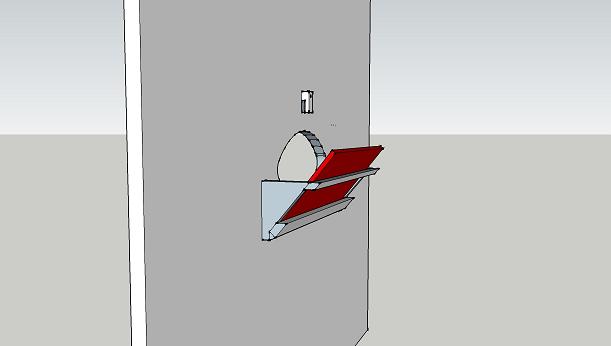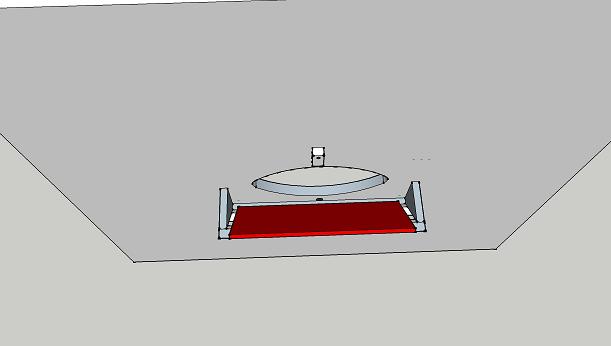Simple opening window from old sailboat
For those who have never seen this set up before I thought I would post an example of the kind of opening window (porthole) that were used on older wooden sailboats.
I lived with these for a few years when I owned and sailed a 36' wooden schooner on the Chesapeake Bay. I went through a few storms and the ports were never the reason why things got wet inside.
In the pictures the red plate is a sheet of tempered glass or lexan. The glass/lexan pivots resting by gravity on the bottom of the support. To open the port, the wooden block at the top is swiveled out of the way and the glass/lexan is allowed to drop back against the angled support. To close it, you push the glass back against the wall (bulkhead) and then swing the wooden block back to the latch position.
At the bottom of the support there is a hole drilled through the wall to allow any water that gets in to drain back outside. On a boat because of the constant rolling, the water finds its way there. On a more stable platform like a trailer, you might want to angle the bottom of the support so that the water would be funneled toward the hole.
Some builders would also angle the bottom edge of the porthole opening through the wall so that the water would tend to run back out.
On my boat I didn't have any gasket that would seal the glass against the wall. The glass just butted up against the wall. Obviously you could put one in if that seemed the right way to you.
I put drawings in my personal gallery but here is a brief example.


This approach certainly isn't classic Teardrop but somebody out there might find it a helpful alternate approach to doing one of the windows they want in their Teardrop or Tiny Trailer.
Use it if you like it.
Ken
I lived with these for a few years when I owned and sailed a 36' wooden schooner on the Chesapeake Bay. I went through a few storms and the ports were never the reason why things got wet inside.
In the pictures the red plate is a sheet of tempered glass or lexan. The glass/lexan pivots resting by gravity on the bottom of the support. To open the port, the wooden block at the top is swiveled out of the way and the glass/lexan is allowed to drop back against the angled support. To close it, you push the glass back against the wall (bulkhead) and then swing the wooden block back to the latch position.
At the bottom of the support there is a hole drilled through the wall to allow any water that gets in to drain back outside. On a boat because of the constant rolling, the water finds its way there. On a more stable platform like a trailer, you might want to angle the bottom of the support so that the water would be funneled toward the hole.
Some builders would also angle the bottom edge of the porthole opening through the wall so that the water would tend to run back out.
On my boat I didn't have any gasket that would seal the glass against the wall. The glass just butted up against the wall. Obviously you could put one in if that seemed the right way to you.
I put drawings in my personal gallery but here is a brief example.
This approach certainly isn't classic Teardrop but somebody out there might find it a helpful alternate approach to doing one of the windows they want in their Teardrop or Tiny Trailer.
Use it if you like it.
Ken
